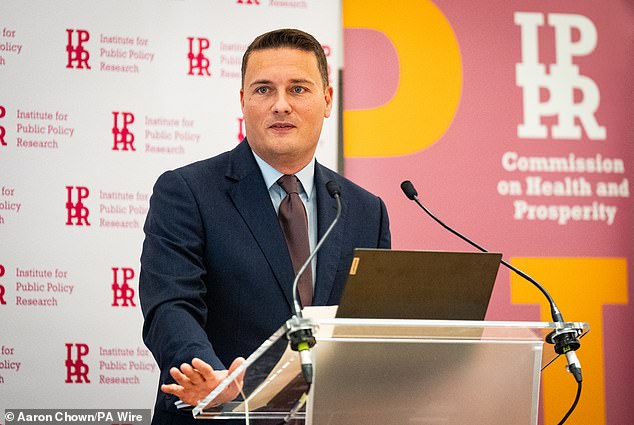Shortcomings in NHS maternity services are so “widespread” they risk becoming “normalised”, a damning report warns today.
When a major study concluded that desperate medical care was “not limited” to high-profile scandals such as those in East Kent, Shrewsbury and Telford, where hundreds of babies and mothers died or suffered avoidable harm, Wes Streeting described the situation as a “national disgrace”.
The Care Quality Commission (CQC) said two-thirds of services “require improvement” or are “inadequate” for the safety of mothers and babies.
He stressed that many are failing to learn from their mistakes and prefer to treat incidents as “inevitable” rather than accept responsibility.
In an unprecedented move, the regulator called for “greater national action” and targeted investment to address the shortcomings.
Health Secretary Wes Streeting speaks at a Public Policy Institute event on September 18
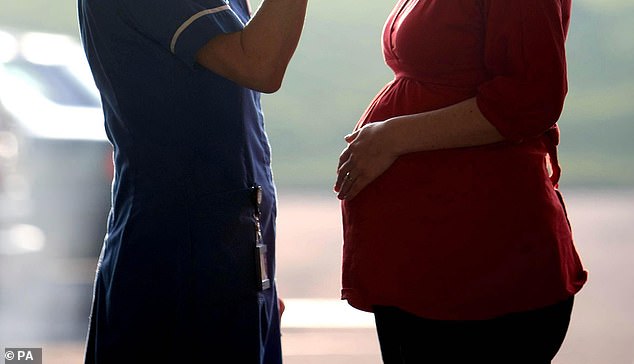
Mr Streeting has called a report into the failings of NHS maternity services a “national disgrace” (File image)
But activists say the recommendations are not enough and warn that in the meantime, “countless lives are being shattered forever.”
Last night Mr Streeting vowed to fix maternity services, insisting the current situation kept him “awake at night worrying”.
The Health Secretary said: “These findings are a source of national shame.”
‘Women deserve better: childbirth should not be something they fear or look back on with trauma.
“It is simply unacceptable that almost half of the maternity units reviewed by the CQC provide poor care.”
NHS maternity care has come under increased scrutiny following several high-profile investigations, including into more than 200 baby deaths at Shrewsbury and Telford Hospital NHS Trust and the inquiry into maternity services in East Kent.
Inspectors visited 131 units between August 2022 and December 2023 as part of a national program to reverse the trend.
The report blamed poor incident management with limited learning when things go wrong, failure to ensure safe and timely assessment at triage, inadequate facilities and access to essential equipment, lack of oversight by boards and significant challenges in recruiting and retaining staff.
The report concludes: “If we fail to act, we risk poor care and avoidable harm becoming the norm. We cannot and must not allow this to happen.”
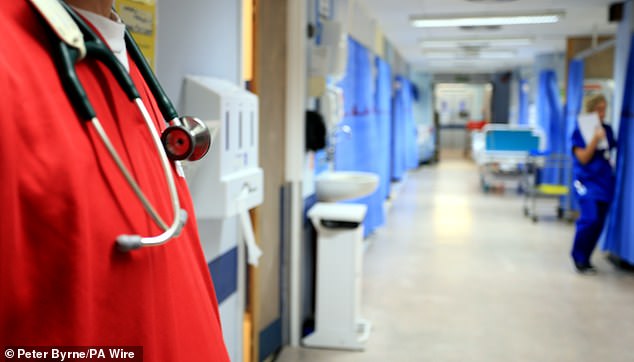
Last night, Mr Streeting vowed to fix maternity services, insisting the current situation keeps him “awake at night worrying” (File image)
Almost half (48 percent) were rated as requires improvement or inadequate, while only four percent were rated as outstanding and 48 percent were rated as good.
The CQC said the safety of maternity care “remains a key concern” and no services were rated as outstanding, 47 per cent required improvement, 18 per cent were rated as inadequate and just 35 per cent were rated as good.
Incidents are poorly managed and no lessons are learned from, which has the potential to normalise serious harm to motherhood, she said.
Not all patients received a safe and timely assessment when assessed; there were instances where triage phones were not answered and some women were discharged before being seen by a midwife or doctor because delays were so severe.
While complications such as postpartum haemorrhage are clearly recognised by maternity staff, the “significant impact” they have on women is often overlooked.
Some NHS properties were described as “not fit for purpose”, lacking “space and facilities and, in a small number of cases, appropriate levels of potentially life-saving equipment”.
There are also concerns about how maternity staff communicate and interact with women and their families.
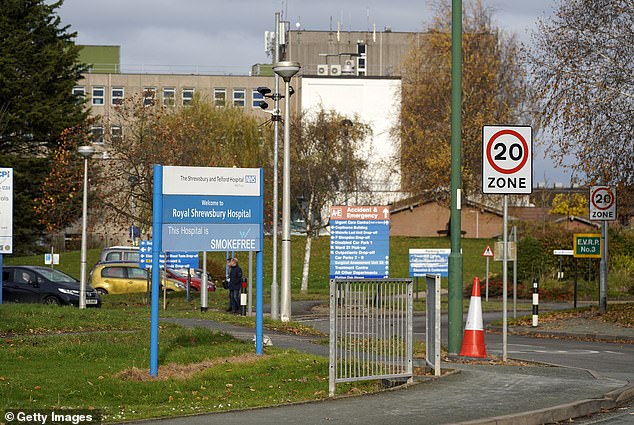
A devastating investigation has uncovered hundreds of preventable baby deaths and cases of brain damage at the Royal Shrewsbury Hospital maternity ward (pictured)
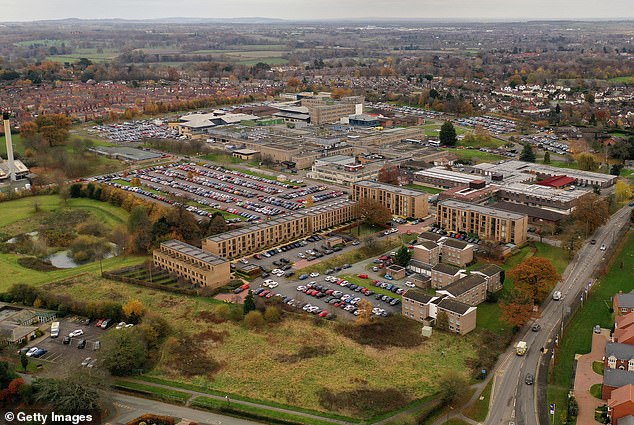
More than 1,400 cases have been reviewed at Royal Shrewsbury Hospital (pictured), most of which occurred between 2000 and 2019.
Nicola Wise, director of secondary and specialist care at the CQC, said: ‘While we have seen examples of good care and seen hard-working and compassionate staff doing their best, we remain concerned that key issues continue to impact on quality and safety.
“Unfortunately, none of these problems are new.”
The report makes a number of recommendations to NHS trusts, NHS England and integrated care boards, including better data collection and allowing affected parents to have greater input into any care reviews.
She also called on the Department of Health and Social Care (DHSC) to invest more in maternity services and work with NHS England to ensure this is protected.
But James Titcombe, whose preventable death of his son Joshua in 2008 prompted the Morecambe Bay inquiry, said they were not enough.
She told the Mail: “We urgently need a national process that examines the system as a whole, including an honest analysis of why previous attempts to reform maternity safety have failed.
‘This work is sorely needed, otherwise the next 10-year plan for the NHS being developed by our new government risks being another missed opportunity for maternity safety, with the cost measured in more avoidable tragedies and lives forever shattered.’
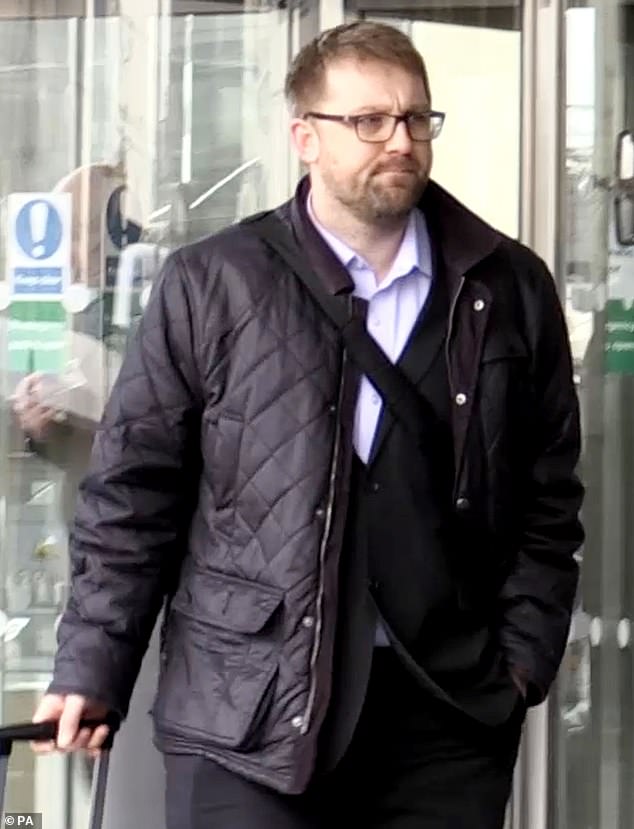
James Titcombe (pictured) urged the government to take action, saying “the cost will be measured in more avoidable tragedies and lives forever shattered”.
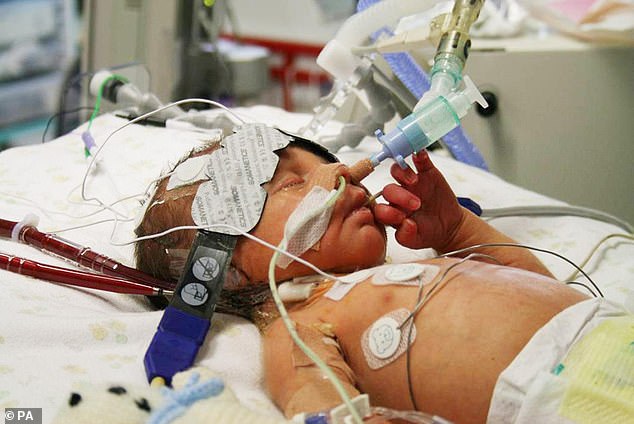
Their son Joshua Titcombe (pictured) died after suffering pneumococcal septicaemia and a pulmonary haemorrhage on 5 November 2008, nine days after his birth at Furness General Hospital in Cumbria.
NHS chief midwife Kate Brintworth admitted that a large number of women and families still feel let down.
She said: “We know there is much more we need to do to improve standards of care and build on the improvements already made, and we will continue to provide intensive support to the most challenged trusts and support the growth of the maternity workforce.”


